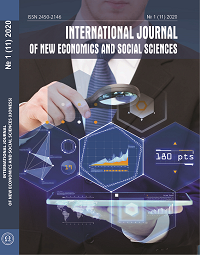RELATIONSHIP BETWEEN PROSOCIAL BEHAVIOUR AND ALTRUISM
RELATIONSHIP BETWEEN PROSOCIAL BEHAVIOUR AND ALTRUISM
Author(s): Miroslav Gejdoš, Martin KováčikSubject(s): Social Sciences
Published by: Międzynarodowy Instytut Innowacji "Nauka - Edukacja - Rozwój"
Keywords: Altruism; Egoism; Prosocial behaviour; Social ethics; Effectiveness
Summary/Abstract: The article deals with the definition and description of the concept of altruism from its ethical and philosophical side against the background of prosocial behaviour. We point out the relation between prosocial behaviour of man and altruism based on a summary of respondents 'opinions on the issues of trustworthiness and efficiency of charitable organizations, respondents' participation in their support and the most common way of donation. Effective altruism is supposed to be a kind of helper for people who want to donate part of their money to charity organizations to improve the world, but are unable to make the right decision about whose financial contribution they are donating. Distrust of charities is becoming more and more current, leading people to stagnate charity. The lack of information on efficiency, functioning, results and a non-transparent list of sources of funding for charitable organizations has prompted us to be more interested in this area. A transparent list of the most effective charities with detailed information on the use of funds to which every person would have access could be a way to express charity and humanity more than ever before. The most ideal scenario is for all people to adopt such behaviour, but in today's world there is the opposite extreme - egoism, selfishness, individualism, materialism and lack of interest in others, which, unfortu-nately, often hide behind altruism. Society, as such, cannot do without altruistic be-haviour, so even "impure" motives can bear fruit, of course, to some extent. Altruism is most often confused with the concept of pro-sociality, as a way of helping others, without expecting the reward that can come, but forms the core not only of ethical education but of each education because it leads to more positive relationships. Living in a society where there is positive energy and people are helping each other is a fuller life.
Journal: International Journal of New Economics and Social Sciences IJONESS
- Issue Year: 11/2020
- Issue No: 1
- Page Range: 395-406
- Page Count: 12
- Language: English, Polish

